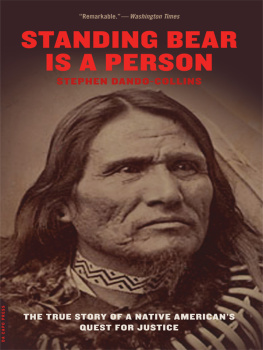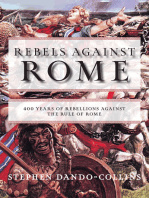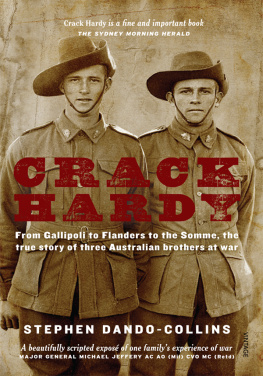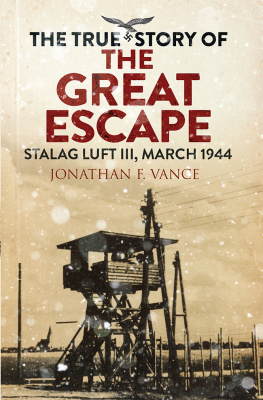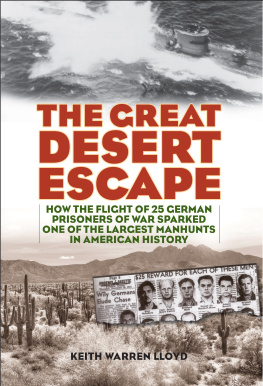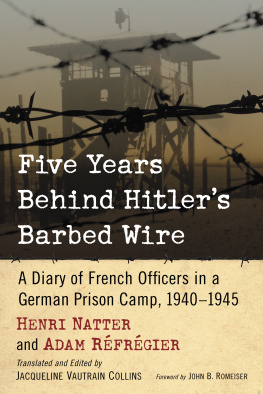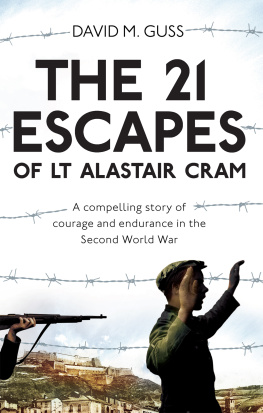Contents
Guide

The author and publisher have provided this e-book to you for your personal use only. You may not make this e-book publicly available in any way.
Many people around the world have contributed to this books creation. Not least my New York City literary agent, Richard Curtis; my supportive publisher at St. Martins Press, Karen Wolny; and Karens assistant, Laura Apperson.
In Poland, I am especially grateful to Mariusz Winiecki, who was born in Szubin and is a passionate researcher of Oflag XXI-B and Oflag 64 history and author of The Oflag 64 Record blog. Thank you, also, to German historian Peter Domes, who was born just outside Hammelburg, for detailed information about Task Force Baum from the German perspective.
In the United States, I received enormous help from relatives of Schubin prisoners, starting with Elodie Caldwell, daughter of Reid Ellsworth, who also helped in the illustration search and facilitated my contact with many other members of the Oflag 64 Association. Among those members, I want particularly to thank Marjory Holder, daughter of H. Randolph Boomer Holder; Ed Ward, Jr., son of Ed Ward; Brian Rose, grandson of Robert J. Rose; Mary Shular Hopper, daughter of William A. Shular, Jr.; Linda Krueger, daughter of Alfred C. Nelson; and Mary Meacham, daughter of Merle A. Meacham, for sharing their relatives memories and mementos.
My sincere thanks, also, go to the very helpful Fania Khan Mohammad of the International Council of the Red Cross, Geneva, Switzerland; Allie Baker of the Ernest Hemingway Project; and Laurie Austin at the John F. Kennedy Presidential Library and Museum, Boston.
Finally, and most importantly, thank you to my dear wife, Louise, my ever-supportive partner in lifes adventures.
Schubin or Szubin?
To Poles, the town where the POW camp known as Stalag XXI-B, then Oflag XXI-B and later Oflag 64, was located, wasand isknown as Szubin. For two centuries, Germans called it Schubin, a name also used by American and British prisoners incarcerated there. In this work, because they were the form used during World War II by POWs, German styles and terms are used.
Likewise, the camp at Sagan (todays aga) in Silesia, location of the famous Great Escape, was written as Stalag Luft 3 by German authorities, not Stalag Luft III, the style later adopted in the books of Paul Brickhill, author of The Great Escape , and others. Brickhill actually wrote it as Stalag Luft 3 in his early writings, with the change to Roman numerals imposed by his British editors in the 1950s.
Abort German for latrine or lavatory.
AbwehrGerman military intelligence.
ADCaide-de-camp. Junior officer serving as personal assistant to a general staff officer.
AltburgundGerman name for Schubin from 1941. The name never caught on, with Germans in the town sticking with Schubin.
AmerikanerGerman for American.
AmerikanskiPolish and Russian for American.
Appell German for roll call.
Appellgrund parade ground in a camp, where Appell was held.
Asselincode name for escape tunnel at Oflag XXI-B Schubin dug from main Abort . Named after Canadian POW Eddy Asselin, who masterminded it.
Aussie (Ozzie)Australian.
Big SBritish code name for head of security on POW camp escape committee.
Big XBritish code name for head of POW camp escape committee.
Bulletin, The daily handwritten American newssheet at Oflag 64.
burp gunAmerican slang for a submachine gun.
Circuit, theexercise track around the inside of POW camp wire. Also, The Circuit , name of Stalag Luft 3 South Compound newsletter.
COcommanding officer.
cookhouse tunnelescape tunnel at Oflag XXI-B Schubin.
CoolerBritish and American slang for separate solitary confinement jail in POW camps.
CPMCaptured Personnel and Materiel branch of US Military Intelligence.
ESCOMUSAAF Eastern Command, based at airfields in Russia during 19441945.
FerretBritish and American slang for specialist German POW camp guard whose job was to unearth escape activities and contraband. At Oflag 64, the Ferret was the American nickname for the German sergeant who was the camps chief ferret.
Flak German for antiaircraft gun/s or fire. Abbreviation of Fliegerabwehrkanonen .
Fudgehigh-energy POW escape food, in cake form.
G-2American military intelligence.
Generalmajor German major general.
Geneva ConventionThird Geneva Convention of 1929. International agreement on the conduct of war, in particular covering the treatment of prisoners of war.
GestapoGeheime Staatspolizei, German secret police.
Goohigh-energy POW escape food, in cake form.
goonBritish and American slang for German POW camp guard.
goon boxBritish and American slang for German sentry box.
goon towerBritish and American slang for German guard tower.
greatcoatlong, thick military overcoat.
Great Escape, theStalag Luft 3 escape by 76 Allied POWs from 13 countries in March 1944. Three reached Britain; the rest were recaptured. Fifty were subsequently executed by the Gestapo. The escapes name came from the international bestselling book by the Australian author and former POW Paul Brickhill, who participated in the escapes preparations. Brickhill wrote the story five different ways before the book finally was published in 1950. It became a one-off NBC TV drama in 1951 featuring Rod Steiger; the most famous adaptation of Brickhills book is John Sturges 1963 Hollywood movie version.
Hanomaglightly armored German halftrack truck.
Hauptmann German captain.
Hetzer German 75 mm tank destroyer.
honey wagonPOW slang for vehicle used to remove sewage pumped from camp latrines.
Hundefhrer German dog handler.
Item, The monthly American camp newspaper at Oflag 64.
JerryBritish and American slang for a German.
Klimtinned powdered milk received by American and British POWs in Red Cross food parcels. Empty Klim cans were used in escape apparatus, and for stage equipment in Oflag 64s Little Theater.
Kommandant German commandant.
Kommandantur German command center at POW camp, outside the prisoner compound.
KrautAmerican slang for a German.
kriegieAmerican and British slang for POWs in German camps. Abbreviation of German Kriegsgefangener . Also sometimes written kriegy.
kriegieitisAmerican POW term for the chronic depression that seized some prisoners.
Kriegie KollegeAmerican school for inmates of Oflag 64, operated by inmates. Also called the Altburgund Academy by some kriegies.
Kriegsgefangener German for prisoner of war.
Kripo Kriminalpolizei . German criminal police.
Lager German for camp.
Lageroffizier German officer of the day in POW camps.
LazarettGerman military hospital.
Leutnant German lieutenant.
LimeyAmerican slang for a British serviceman.
Little Theatertheater created in a barrack block at Oflag 64 by American inmates.
LuftwaffeGerman Air Force.
machine pistolsubmachine gun with a pistol grip.
messdining area in a military camp.
MI9British WWII security bureau responsible for aiding POW escapees and obtaining information from or via POWs. Part of same military intelligence agency as the more famous MI5 and MI6.
Mixture, thehigh-energy POW escape food, in cake form.
MOmedical officer.
M3American light tank. Known as the Stuart in British and Australian armies, which also used it.



